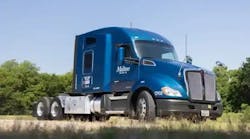Senior officials of the Office of Management and Budget and the EPA confirmed the decision, with one saying, "We looked at the science and heard from as many stake-holders as possible . . . and believe that moving forward is the right thing to do," according to The Washington Post.
"Obviously we think it's the wrong decision, given that most of the companies haven't had a chance to adequately test the engines," Hastert spokesman John Feehery told The Washington Post. "There could be safety concerns, but we will have to see what they say before making any official reaction."
Diesel engine manufacturers face millions of dollars in penalties because they cannot meet the October 1 deadline. Six engine manufacturers signed consent decrees with the Justice Department in 1998 agreeing to meet the new standard.
The Washington Post said Hastert was drawn into the dispute by Caterpillar, which is based in Peoria, IL. A Hastert spokesman said recently that Caterpillar "is a very important company, not only in Illinois but in the country," and that Hastert and other lawmakers were "trying to get some common-sense regulation."
Caterpillar officials say it would be unfair for the government to implement the new rule this fall because manufacturers haven't been given sufficient time to test new engines that cause less pollution and because the added cost of developing those engines will seriously harm an industry already reeling from years of declining sales.
The company complained that EPA has proposed a sliding-scale penalty system of fines that is three times greater than originally discussed. According to the EPA, the penalties range from a few hundred dollars – for an engine close to meeting the new emission standards – to more than $12,000 for an engine far from compliance.


